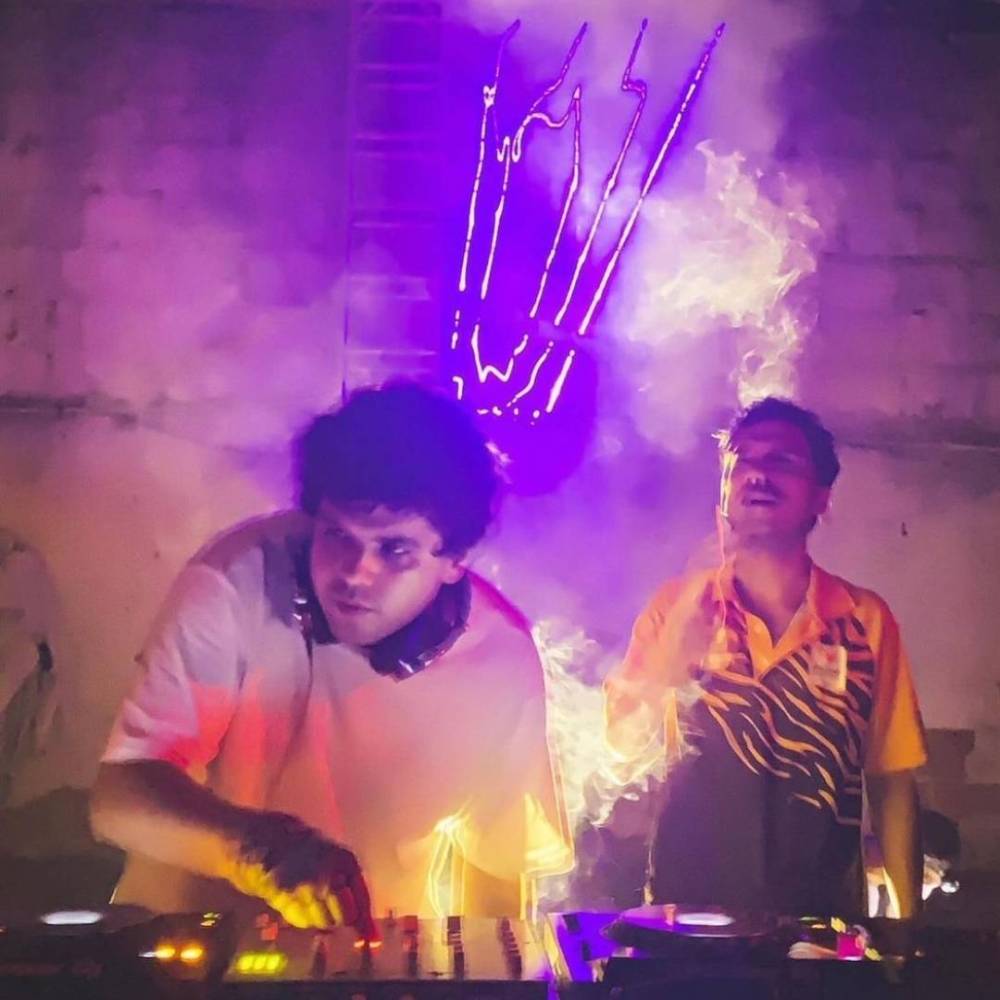Wolfgang Mowrey keeps a CD copy of D’Angelo’s Black Messiah in his car and it always shines.
The end of music discovery is far from ever being a reality. Roughly 60,000 new songs are uploaded to streaming services each day, and that doesn’t account for the old projects that are still anonymous and overlooked. Forgotten recordings from total unknowns – made with varying degrees of MIDI polish and engineering competence – remain buried amidst heaps of Spring Break playlists and AI-generated Ambient. “Most of it is garbage,” John Williamson, the co-founder of ULYSSA Records tells me. “But some of it is the most fried and out there stuff you’ll ever hear.”
Founded by Willamson and EO Deines in 2020, ULYSSA Records has been mining unheard classics from the trenches of DSPs and far corners of the internet, finding a cast of often solitary heroes making music at the intersection of familiar and foreign. The label has recently gotten into vinyl, but specializes in releasing cassette mixtapes and playlists documenting what is less so a scene and more a cultural reaction that dates back decades – the intergenerational dialogue between early digital adapters who were exploring new technologies, and listeners with unlimited access to all recorded music made.
The result is something that sounds like what ECM Records would be making if Manfred Eicher started his label today – an obsession over taking conceptually distant sounds and recontextualizing them to the point of only vague familiarity. There’s the label’s inaugural release, a distorted to bliss cassette rip of a John Mellencamp & Lou Reed show from 1987, taken from a YouTube upload of illicit camcorder footage of a secret show, where the audio stretches the audience’s cheers on “Sweet Jane” into ecstatic swells. One thundering jolt of joy after another from a crowd that cannot believe what they are witnessing in a tiny Indiana club.
A deeper perusal into the ULYSSA oeuvre is a jagged line that crosses through the Mississippi Delta, Hawaii, Brazil, Savannah, Georgia, and anywhere else that could house a hidden genius operating outside of the confines of the music industry. On the label’s “ >1,000” series, the duo champion everything from lo-fi dancefloor heaters to bistro-tinged folk jazz, elevating transient bursts of weirdo creativity with under one thousand streams into “Nuggets” status.
There are also the numerous surveys of “toejazz” – an umbrella term coined by the duo for turn of the millennium jazz musicians with varying levels of experience, newly armed with Photoshop and home recording equipment – embracing the sounds of smooth jazz, new age, house, and hip-hop to soundtrack the digital age. The toe jazz sound is amorphous, moreso defined by attitude than an overall aesthetic. Toejazz could be a father of three fiddling with his guitar and adding a drum machine track behind it, and it could also be a self-taught pianist trying to incorporate a preset “techno” beat to keyboard vamps. It’s the awkward optimism that stems from a mutual recognition between artist and audience, as if both parties are exchanging smiles, thinking, “I don’t know how this shit is supposed to work, but it feels good, so here we go!”
The label even put out a Duwap Kaine cassette compilation last year. “I’ve been a fan of Duwap’s output since 2019 or so,” says Deines. “He’s so relentless and outsider-y in his own way. I simply slipped into his DMs and asked if he’d let us make a limited tape of our fave cuts of his. We went all the way back and found a song or two from his YouTube days when he was, like, 13 and sampling SpongeBob. I sent him art ideas and links and such along the way but he only just hearts them and never responds.”
Their latest release, a collaboration between Brazilian house producers Gabriel Guerra and Lucas de Paiva, & Bruce Hornsby (he of “The Way It Is” fame), came about after the label, who had been distributing Guerra and de Paiva’s 40% Foda label and even released a stacked cassette compilation, connected the duo with Hornsby, who Deines became acquainted with several years prior. Hornsby, whose own career could serve as a toejazz manifesto, broke through in the 1980s as a soft rocker before touring as the Grateful Dead’s keyboardist, then spent the 1990s dabbling in smooth jazz and trip hop.
Hornsby’s latest releases include collaborations with the LA-based jazz guitarist Blake Mills, who could be considered a toejazz acolyte, taking bits of influence from jam bands, new age, indie rock and smooth jazz and mashing them together like play-doh. On Contrahouse, Guerra, de Paiva, & Hornsby find a nexus point between sophisti-pop and balearic club music, where Hornsby’s distant calls and echoes rub against dubbed-out percussion and sanitized keyboards, creating something simultaneously familiar and alien.
For so many, it becomes deceptively easy to inadvertently mistake “professionally made” for “interesting,” neatly organized and properly tagged. But that doesn’t account for the friction that occurs when artists bear no mind to any boundaries or rules and simply hit “record,” blotting out any descriptor for what something should sound like and rewriting it themselves. ULYSSA is a testament to that friction, making art that speaks to something more truthful than taste, or being featured on a New Music Friday. For Deines and Williamson, digging for and sharing these iconoclasts, intentional or not, is what keeps them returning to the trenches.

